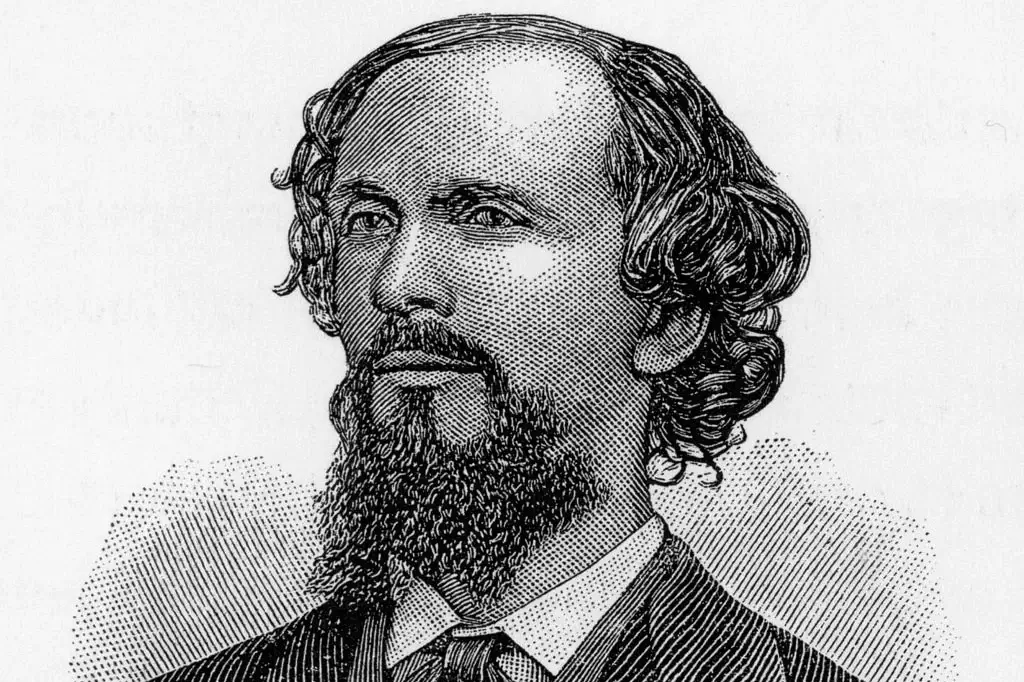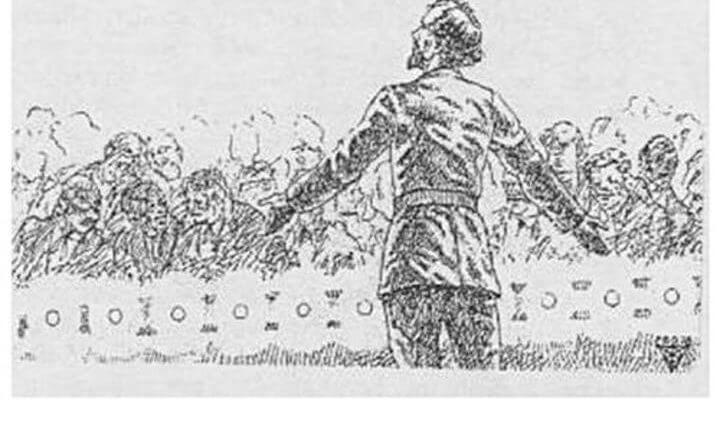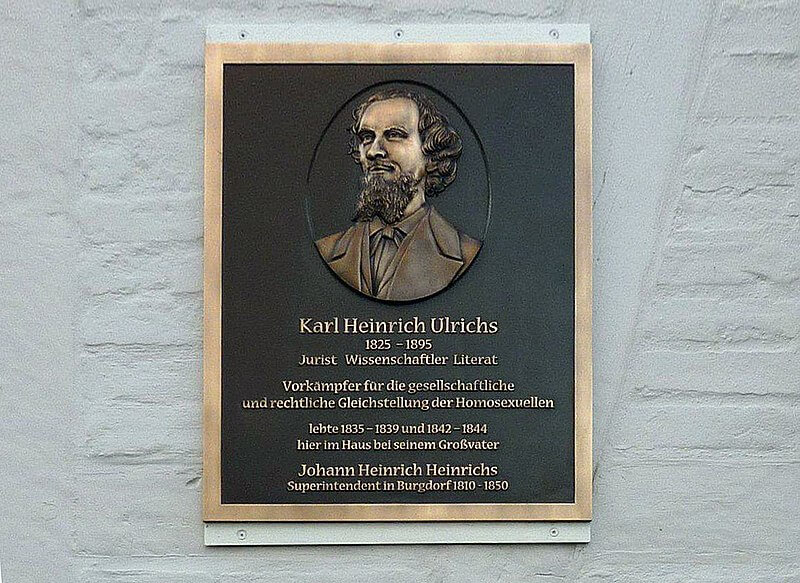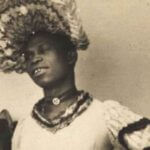Karl Heinrich Ulrichs was a German lawyer, jurist, journalist, and writer who is regarded today as a pioneer of sexology and the modern gay rights movement. He is often described as the “first gay man in world history” for being the first homosexual to speak out publicly in defense of homosexuality when he pleaded at the Congress of German Jurists in Munich for a resolution urging the repeal of anti-homosexual laws.
Biography of Karl Heinrich Ulrichs
Karl Heinrich Ulrichs was born on the 28 August 1825 in the Kingdom of Hanover. His father was a Lutheran pastor. As a child, Ulrichs stated that he felt different from other boys and was attracted by the bright colors of military uniforms and women’s clothing. In 1839, at the age of fourteen, he experienced his first sexual encounter with his riding instructor. Urichs acquired his education in law and theology from Göttingen University in 1846 and studied history at Berlin University from 1846 to 1848.
From 1849 to 1854, Ulrichs worked as a lawyer for the civil service in the Kingdom of Hannover. Initially, he worked as an official administrative lawyer in various locations but did not enjoy the work or thrive. He transferred to the court system in 1853 and joined the bench as an assistant judge in the district court of Hildesheim. He resigned on 30 November 1854 rather than face dismissal when a possible blackmail attempt meant his sexuality became common knowledge.
Read More:
- William Dorsey Swann: The First LGBTQ Activist In History.
- Why gay rights are not visible in Africa
- Top gay Grammy awardees
Sex Reform Campaign
In 1862, Ulrichs took the momentous step of telling his family and friends that he was, in his own words, an Urning; a historical term for homosexual. He then began writing under the pseudonym of “Numa Numantius”. In his essays, he campaigned for the legal rights of gay people and argued that homosexuality was both biological and natural.
Ulrichs also coined various terms to describe different sexual orientations, including Urning for a man who desires men and Dioning for one who desires women. He also coined words for the female counterparts (Urningin and Dioningin), and for bisexuals and intersex persons. In the 1860s, he moved around Germany, always writing and publishing, which puts him in trouble with the law. In 1864, his books were confiscated and banned throughout Prussia. Some of these papers were later found in the Prussian state archives and published in 2004.
Ulrichs was a patriotic Hanoverian, and when Prussia annexed Hanover in 1866 he was briefly imprisoned for opposing Prussian rule. The next year he left Hanover for good and moved to Munich. There he became the first homosexual to speak out publicly in defense of homosexuality when he pleaded for the need to reform German laws against homosexuality. at the Congress of German Jurists in Munich on 29 August 1867.
Speaking in front of 500 lawyers, state officials, and academics, Ulrichs argued that discriminatory anti-sodomy laws should be overturned. In his speech, He referred to gay people as a “class of persons” who were facing state persecution simply because “nature has planted in them a sexual nature that is opposite of that which is usual”. His speech was not well received. The men gathered in the Congress shouted him down and loudly objected to what he was saying. He was ultimately forced off the stage,
Death and Legacy of Karl Heinrich Ulrichs
After his speech at the Congress of German Jurists, Karl Heinrich Ulrichs began publishing his books under his own name. In 1879, he published the twelfth and final book of his Research on the Riddle of Man-Manly Love. He eventually left Germany and went on a self-imposed exile in Italy in 1880. For several years he traveled around the country before settling in L’Aquila. He spent the final 15 years of his life there, and he earned a living by tutoring foreign languages. He also continued to write extensively – he published a journal in his later life which argued that Latin should be revived as an international language.
In 1895, Ulrichsr received an honorary diploma from the University of Naples. Shortly afterwards he died in L’Aquila. He was forgotten for so many years, until the late 1980s when he became something of a cult figure in Europe. Streets were named after him in Munich, Bremen, Hanover, and Berlin. His birthday is marked each year by a lively street party and poetry reading at Karl-Heinrich-Ulrichs-Platz in Munich. The city of L’Aquila has restored his grave and hosts the annual pilgrimage to the cemetery. In Ulrichs’ memory, the International Lesbian and Gay Law Association presents a Karl Heinrich Ulrichs Award for distinguished contributions to the advancement of sexual equality.




